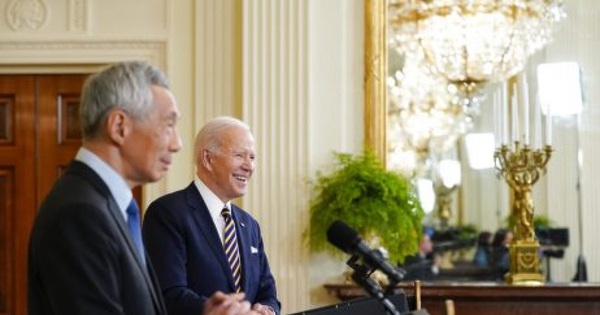Europe has a headache thinking about banning Russian oil
Banning Russian oil is a major blow because it cuts the country’s exports by half, but the EU also bears both economic and political risks.
European Union (EU) officials are considering cutting Russian oil imports and may present a plan to countries as early as next week. However, it remains unclear whether they intend to cut off Russian President Vladimir Putin’s core revenue stream.
Oil revenues are believed to play an important role in funding Russia’s military campaign in Ukraine. However, diplomats who want to deal a blow to the Kremlin with an embargo on Russian oil worry that the EU might consider a softer approach, influenced by hesitant members such as Germany and Hungary.
An immediate, full-blown Russian oil ban remains unacceptable to economic powerhouse Germany. Berlin has told other members of the bloc that it is still open to considering cuts to Russian oil – even if it can’t yet give up gas imports – but only under specific conditions, which are being discussed with the European Commission. .
“Oil imports will be halved in the summer and will be zero by the end of the year,” German Foreign Minister Annalena Baerbock said in mid-week.

A Russian oil and gas complex in Krasnoyarsk. Photo: Reuters
According to officials and diplomats, any EU oil embargo would make a distinction between Russian oils and how they are transported to the EU (by tanker or pipeline). In 2020, of the 2.8 million barrels of crude oil exported per day from Russia to Europe, 700,000 come by pipeline.
As with recent sanctions on Russian coal, the bloc is discussing transitional periods to give member states time to prepare. According to diplomats, details of the ban could be presented to EU ambassadors as early as next week.
When it comes to the various oils that could be banned, EU refineries are mainly set up to refine the Russian Urals grade. This is a mixture of heavy oil extracted from the Urals and Volga regions, mixed with lighter oil from western Siberia. Targeting that will have a real impact.
The closest substitutes for Urals oil would be Iranian and Saudi Arabian light crude. In any case, “all refineries are quite flexible, and some are even extremely flexible when it comes to taking on a wide variety of crude grades,” said Alain Mathuren, communications director at FuelsEurope. European refiners) said. He further revealed that many refineries in Europe may have 60 different grades of crude in storage.
But according to experts, the main challenge is logistics. Buying Russian oil is easier because it goes directly through pipelines to many refineries without taking into account waterways and shipping delays.
Russia also exports a lot of heavy fuel oil and lubricants, mainly used to make diesel. This supply generates 10% of the EU’s finished diesel. This is a sensitive product that is less likely to be considered for sanctions, especially during the peak summer driving period. But according to an EU diplomat, the ban has so many exceptions, it is no longer scary.
Essentially, oil sanctions will hurt both the EU and Russia, because they are interdependent. The Bruegel research group calculates that Russia supplied 3.5 million barrels of the 15 million barrels per day EU imports last year.
They also note that the EU and UK paid Russia a total of 88 billion euros for those imports. However, it is not only the EU that suffers when it stops buying Russian oil. The Putin administration also depends on Europe to sell nearly half of its oil exports, and diversifying into customers won’t be easy.
“An oil import ban has of course a significant effect,” said David Mühlemann, a commodities expert at Public Eye, a Swiss NGO. “It’s a huge market and can’t be replaced overnight,” he added. The cause is the lack of infrastructure in both Russia and the client countries to trade larger volumes of oil.
Russia’s latest military moves in eastern Ukraine are increasing the pressure to act. However, Brussels still prefers not to discuss the oil embargo in depth, partly because fuel prices are a hot topic in the French presidential election. Far-right leader Marine Le Pen is leading President Emmanuel Macron.
The European Commission has been working with EU countries to come up with a proposal that is politically acceptable to all 27 members. However, Hungarian Foreign Minister Péter Szijjártó earlier this week stressed once again that Budapest would not support any sanctions on Russian oil and gas. Hungary’s interest is economic, not political, he said.
While Germany and Hungary have been the most vocal about opposing Russia’s oil and gas ban, another group of countries including Austria, the Czech Republic, Slovakia and Bulgaria are also concerned about the possibility of an economic downturn if sanctions on Russia are increased.
“The question is: If we ban oil, will it hit the Russian economy harder or the EU? Russia is selling oil to other countries and will make money that way,” said one diplomat. said senior of Central Europe.
With these tensions, the time when the EU actually signs a new sanctions package is also being left open. “This is not going to happen overnight. That’s why now is the perfect time to sit down and dig into the details, especially if you see the situation in Ukraine is deteriorating,” said one expert. EU senior diplomat commented.
Session An (according to Politico)
at Blogtuan.info – Source: vnexpress.net – Read the original article here



